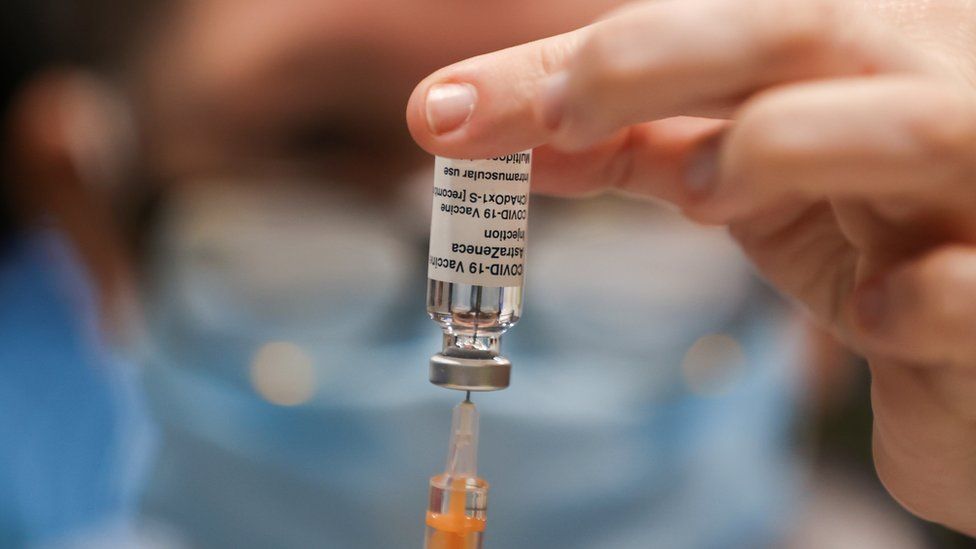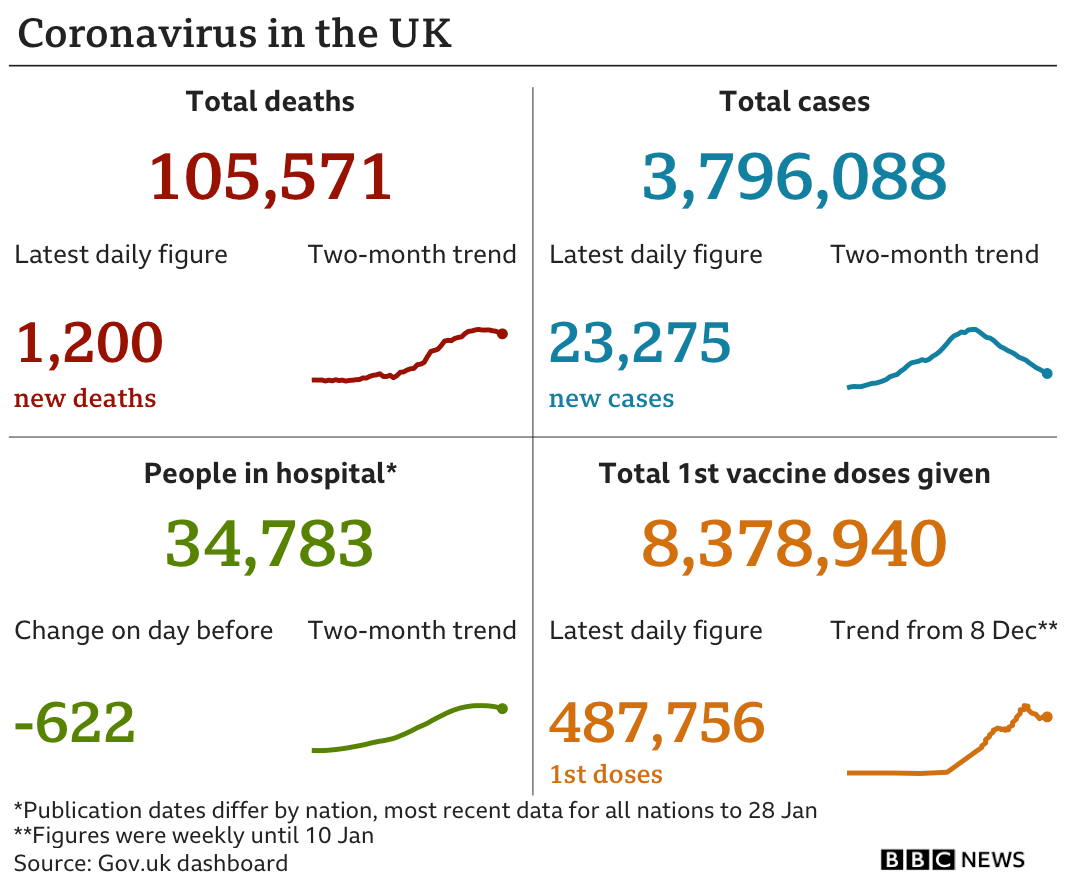
The UK and European Union will "reset" relations after Brussels triggered a provision in the Brexit deal to control vaccine exports, Cabinet Office Minister Michael Gove has said.
The government is confident that the EU will not block vaccines entering the UK.
It comes after Brussels reversed its widely-condemned decision which could have seen checks at the Irish border.
Mr Gove added the European Commission recognised its "mistake".
He said he had spoken with European Commission vice-president Maroš Šefčovič and the pair had agreed to put the people of Northern Ireland first.
Mr Gove said the UK was "on track" to deliver 15 million jabs by 15 February, adding that the UK's programme would continue as planned.
And Foreign Secretary Dominic Raab said he was "reassured the EU has no desire to block suppliers fulfilling contracts for vaccine distribution to the UK" following discussions with European Commission executive vice-president Valdis Dombrovskis.
The UK government says it is "committed to supporting equitable access to vaccines worldwide" but it is too early to formally talk about donating some of its vaccine supplies to other countries.
But a government spokesperson added: "This pandemic is a global challenge and international collaboration on vaccine development and production continues to be an integral part of our response."
It comes as the World Health Organization said "vaccine nationalism" could prolong the pandemic and further widen global inequality.
'Working to protect everyone'
The EU's threat of border controls came amid a deepening dispute over delays to the production and distribution of Covid vaccines across the continent.
The bloc is introducing a so-called transparency mechanism, which gives countries in the bloc powers to deny authorisation for vaccine exports if the company making them has not honoured existing contracts with the EU.
The EU's attempt to apply measures to the Irish border was widely-condemned, and the heads of the UK- and Europe-wide industry bodies have warned against export bans.
Former prime minister Tony Blair said the EU's threat was "a very foolish thing to do and fortunately they withdrew it very quickly".
"Companies are working as fast as they can to protect everyone. Export restrictions do no one any good and we urge governments to avoid them," Richard Torbett, head of the UK's Association of the British Pharmaceutical Industry, and Nathalie Moll, head of the European Federation of Pharmaceutical Industries and Associations, wrote in the Observer.
The EU has insisted that its controls are a temporary scheme, and not an export ban.

- TESTING: How do I get a virus test?
- SYMPTOMS: What are they and how to guard against them?
- LOOK-UP TOOL: How many cases in your area?
- GLOBAL SPREAD: How many worldwide cases are there?

Mr Gove said the government expected vaccines manufactured by Pfizer and AstraZeneca to be supplied to the UK but said it would work with the EU to "make sure that their own problems can be tackled".
"Our first priority is vaccinating people in the United Kingdom, but we also want to work with our friends and neighbours in the European Union in order to help them as well," he said.

Analysis
By Naomi Grimley health correspondent
Like many rich countries, the UK has bought more vaccines than it needs in order to hedge its bets in an emergency.
That's led some to argue that the UK should consider donating some - either to a neighbouring EU country such as Ireland which does not have such a plentiful supply or to poorer countries which currently have none.
But ministers say it's too early to make that call yet.
The World Health Organization wants richer countries to commit to donating their excess once they have enough to vaccinate their most vulnerable.
Norway has said it will do this and India has already given some vaccines to Nepal, Bhutan and Bangladesh in what's been called "vaccine diplomacy".

The UK government said a further 1,200 people had died within 28 days of testing positive for coronavirus as of Saturday, taking the total deaths by that measure to 105,571.
There have been a further 23,275 lab-confirmed cases of the virus in the UK, while 8,378,940 have received their first dose of a vaccine.



https://news.google.com/__i/rss/rd/articles/CBMiJmh0dHBzOi8vd3d3LmJiYy5jby51ay9uZXdzL3VrLTU1ODc2MTc20gEqaHR0cHM6Ly93d3cuYmJjLmNvLnVrL25ld3MvYW1wL3VrLTU1ODc2MTc2?oc=5
2021-01-31 08:41:00Z
52781341197483
Tidak ada komentar:
Posting Komentar